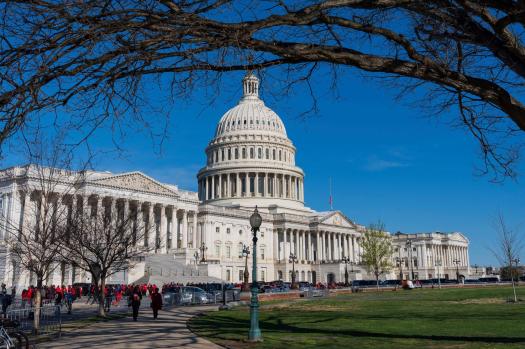By AP Congressional Correspondent LISA MASCARO
Washington (AP) After their attempts to eliminate the Consumer Finance Protection Bureau and other elements from the Senate Banking Committee encountered procedural issues with the Senate lawmaker, Republicans suffered a significant defeat on one important component of President Donald Trump’s massive bill.
In order to save $6.4 billion, Republicans in the Senate suggested zeroing-out funding for the CFPB, the historic organization established in the wake of the 2008 financial crisis. Many Republican lawmakers have opposed the bureau since its formation, despite the fact that it was created to better protect Americans from financial fraud. The CFP has been singled out by the Trump administration as an illustration of excessive government control and overreach.
The results from the Senate lawmaker’s office, which is putting in extra effort to make sure Trump’s entire plan complies with the chamber’s stringent Byrd Rule procedures, portend a difficult journey ahead. As GOP leadership scrambles to get Trump’s signature package to the floor for votes before his deadline of July 4th, the most difficult questions are yet to be asked.
“My colleagues and I remain committed to cutting wasteful spending at the CFPB and will continue to work with the Senate parliamentarian on the Committee’s provisions,” said Sen. Tim Scott, R-S.C., the chairman of the Banking Committee that crafted the measures in question, in a statement.
Democrats, who have opposed Trump’s 1,000-page bill at every turn, considered the lawmaker’s recommendation to be a major victory.
The leading Democrat on the Banking Committee, Senator Elizabeth Warren of Massachusetts, who spearheaded the establishment of the CFPB prior to her election to Congress, stated that Democrats resisted and would continue to do so against this unsightly measure.
In order to give tax cuts to billionaires, Warren claimed that the GOP’s ideas are a reckless and dangerous assault on consumers, will cause more Americans to be duped and ensnared by large financial institutions, and jeopardize the stability of our entire financial system.
Despite being advisory, lawmakers’ decisions are rarely, if ever, disregarded.
Republicans, who have a majority in Congress, have been working on a comprehensive package that would prolong the $4.5 trillion in tax cuts that Trump signed in 2017 during his first term. These cuts would otherwise expire at the end of the year. It increases national security spending by $350 billion, including billions for Trump’s plan to deport large numbers of people. Additionally, it cuts about $1 trillion from federal programs like food stamps, Medicaid, and others.
The then-nonpartisan Congressional Budget Office reviewed the House-passed package, which is currently being revised in the Senate, and found that it would leave 10.9 million more people without health care coverage and increase the nation’s deficits by at least $2.4 trillion over the course of the decade.
In honor of the late Senator Robert Byrd of West Virginia, who was regarded as one of the masters of Senate procedure, the office of the lawmaker is in charge of assessing whether the package complies with the Byrd Rule. In essence, the regulation prohibits discussing policy issues during the budget reconciliation procedure.
Because it permits passage on a simple majority vote rather than a filibuster with the higher 60-vote barrier, Senate GOP leaders are turning to the budget reconciliation process, which is increasingly how large measures pass Congress.
However, the plan can be challenged at the more difficult 60-vote threshold, which is a big order in the 53-47 Senate, if any of its provisions violate the Byrd Rule. Despite the possibility of losing the support of the lawmakers who pushed for certain items, leaders are frequently compelled to remove the proposals from the package.
The Senate GOP’s plan to utilize current policy rather than existing law to determine the baseline budget and whether the entire package adds considerably to deficits will be one of the parliamentarian’s main concerns going forward.
The staff of a Senate lawmaker has already combed through a number of Trump’s major bill names, including those from the Senate Energy & Public Works Committee and the Senate Armed Services Committee.
A small bill of only eight pages was presented by the Banking panel, and a large portion of it was found to be noncompliant.
Related Articles
-
Federal judge blocks Trump effort to keep Harvard from hosting foreign students
-
Police in northeast Ohio arrest man who allegedly menaced GOP US Rep. Max Miller on interstate
-
Federal judge puts off additional rulings in case against Trump s National Guard deployment in LA
-
Supreme Court rejects toy company s push for a quick decision on Trump s tariffs
-
Supreme Court widens court options for vaping companies pushing back against FDA rules
In addition to dismantling the CFPB, the lawmaker concluded that additional measures intended to dismantle organizations established following the 2008 financial crisis would be in violation of the Byrd Rule. These include a GOP provision that would save almost $300 million by limiting the Financial Research Fund, which was established to conduct analysis, and another that would save $773 million by moving the Public Company Accounting Oversight Board, which oversees accounting firms, to the Securities and Exchange Commission and eliminating positions.
It was also found that the GOP’s plan to alter the Federal Reserve employees’ pay schedule in order to save $1.4 billion violated the Byrd Rule.
The office of the lawmaker also brought up Byrd Rule violations in relation to GOP plans to remove parts of the Inflation Reduction Act, such as the pollution limits for specific light- and medium-duty vehicle models from 2027.
This article was written by Mary Clare Jalonick of the Associated Press.












